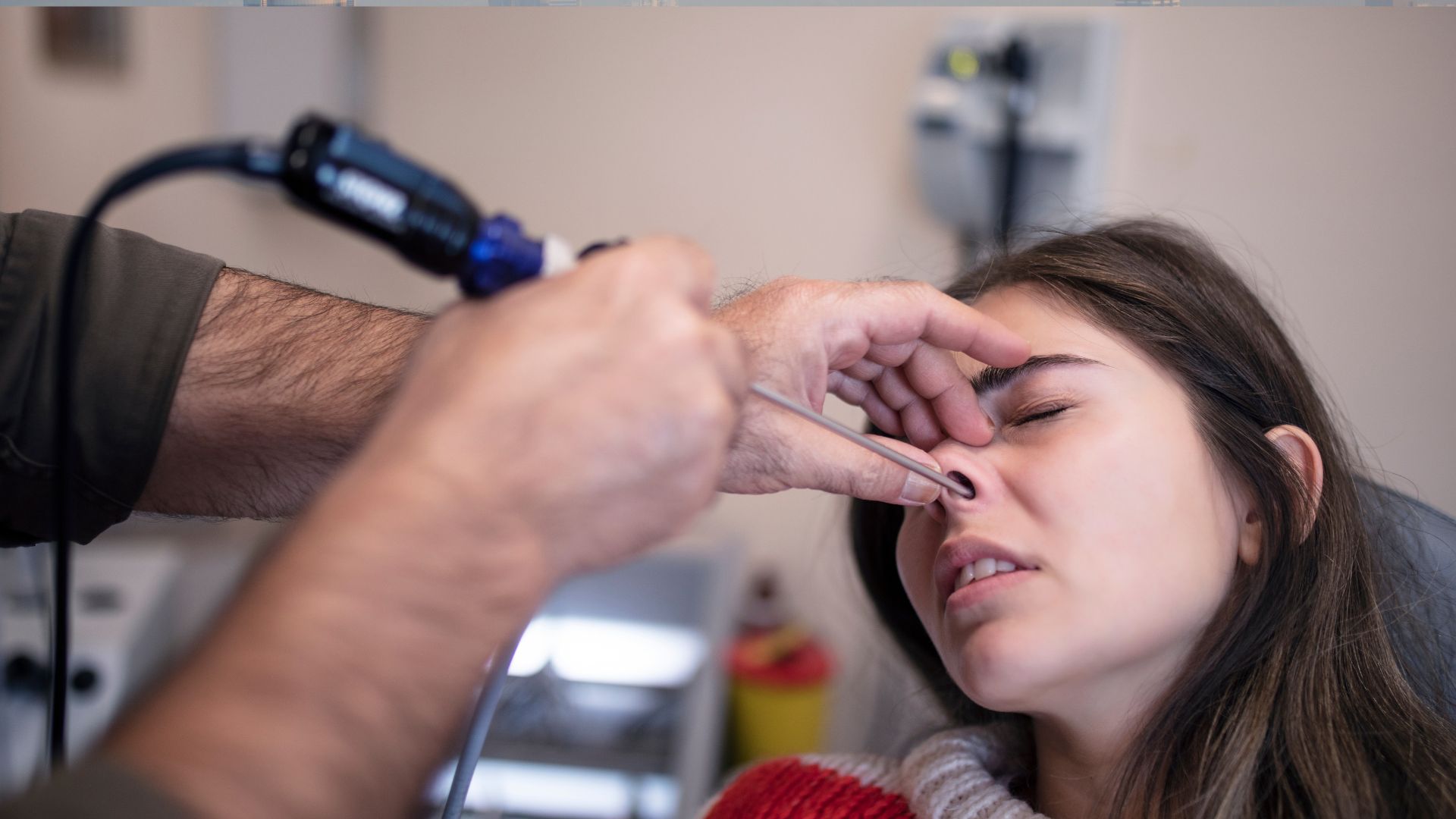In today’s fast-paced world, where allergies are becoming increasingly prevalent, understanding the role of allergy testing in managing ENT (Ear, Nose, and Throat) conditions is crucial. As an ENT surgeon, I often encounter patients whose ENT issues are exacerbated or even caused by underlying allergies. In this blog post, we’ll delve into the significance of allergy testing in the management of ENT conditions and how it can significantly impact treatment outcomes and overall patient well-being.
1. Introduction to Allergy Testing
Allergy testing serves as a pivotal diagnostic tool in identifying specific allergens that trigger allergic reactions in individuals. It aids in pinpointing the root cause of allergic symptoms, which may manifest as nasal congestion, sneezing, itching, or throat irritation, all of which can significantly impact ENT health.
2. Understanding ENT Conditions
Common ENT Conditions
ENT conditions encompass a wide array of ailments affecting the ear, nose, and throat, including sinusitis, allergic rhinitis, otitis media, tonsillitis, and more. These conditions can range from mild inconveniences to chronic and debilitating issues that impair daily functioning.
Impact of Allergies on ENT Health
Allergies play a substantial role in exacerbating existing ENT conditions or even precipitating new ones. For instance, allergic rhinitis, commonly known as hay fever, can lead to nasal congestion, post-nasal drip, and sinus infections, exacerbating symptoms of underlying ENT conditions.
3. What is Allergy Testing?
Allergy testing involves various diagnostic procedures aimed at identifying specific allergens that trigger allergic reactions in individuals. These tests are essential for accurately diagnosing allergies and devising effective treatment strategies.
Types of Allergy Tests
- Skin Prick Test: This test involves pricking the skin with small amounts of common allergens and observing for allergic reactions.
- Blood Test (Specific IgE Test): A blood test that measures the levels of specific antibodies produced by the immune system in response to allergens.
- Patch Test: Used to identify contact allergies by applying small amounts of potential allergens to the skin and monitoring for reactions.
4. Importance of Allergy Testing in ENT
Diagnosis and Treatment Planning
Allergy testing plays a pivotal role in accurately diagnosing allergic triggers underlying ENT conditions. By identifying specific allergens, ENT specialists can tailor treatment plans to address the root cause of allergic symptoms effectively.
Prevention of Recurrence
Understanding a patient’s allergic triggers through comprehensive allergy testing allows for the implementation of preventive measures to minimize the recurrence of ENT conditions. This proactive approach is instrumental in improving long-term outcomes and enhancing patient quality of life.
5. Allergy Testing Procedures
Skin Prick Test
The skin prick test involves introducing small amounts of allergens into the skin through superficial pricks or scratches. Any resulting redness, swelling, or itching indicates an allergic reaction to the specific allergen.
Blood Test (Specific IgE Test)
The specific IgE blood test measures the levels of allergen-specific antibodies (IgE) in the blood. Elevated IgE levels indicate sensitization to particular allergens, aiding in the diagnosis of allergies.
Patch Test
Patch testing is primarily used to identify contact allergens responsible for dermatitis or eczema. Small amounts of potential allergens are applied to patches, which are then affixed to the skin for a designated period. Reactions are assessed after removal of the patches.
6. Benefits of Allergy Testing in Managing ENT Conditions
Personalized Treatment Approach
By identifying specific allergens through allergy testing, ENT specialists can customize treatment plans tailored to individual patient needs, optimizing therapeutic outcomes and minimizing adverse effects.
Identifying Allergens
Allergy testing enables the precise identification of allergens triggering ENT symptoms, facilitating targeted interventions aimed at reducing allergic inflammation and symptom severity.
Avoidance Strategies
Armed with knowledge of specific allergens, patients can adopt avoidance strategies to minimize exposure and prevent allergic reactions, thereby mitigating the impact of allergies on ENT health.
Immunotherapy
For patients with severe or persistent allergies, immunotherapy offers a long-term solution by desensitizing the immune system to specific allergens. Allergy testing guides the selection of allergens for inclusion in immunotherapy formulations, maximizing efficacy and safety.
Conclusion
In conclusion, allergy testing plays a pivotal role in managing ENT conditions by accurately diagnosing allergic triggers and guiding personalized treatment strategies. By identifying specific allergens, ENT specialists can devise targeted interventions aimed at alleviating symptoms, preventing recurrence, and improving overall patient well-being.
FAQs
1. How long does allergy testing take?
- The duration of allergy testing varies depending on the type of test performed. Skin prick tests typically yield results within 15-20 minutes, while blood tests may take a few days for results to be available.
2. Are allergy tests painful?
- While allergy testing may cause minor discomfort, such as itching or a prickling sensation, it is generally well-tolerated by most patients and is not considered painful.
3. Can allergy testing diagnose food allergies?
- Yes, allergy testing can help diagnose food allergies in addition to environmental allergies. Blood tests and skin prick tests can identify specific food allergens responsible for allergic reactions.
4. Are there any risks associated with allergy testing?
- Allergy testing is considered safe, but minor risks such as itching, swelling, or redness at the test site may occur. Rarely, more severe reactions such as anaphylaxis can occur, particularly with skin prick tests.
5. How often should allergy testing be repeated?
- The frequency of allergy testing depends on various factors, including the severity of symptoms, treatment effectiveness, and changes in allergen exposure. Your healthcare provider can advise on the appropriate timing for repeat testing.
About Author:
Dr. Vivek Kumar Pathak: Renowned ENT Surgeon, Senior Professor, and Founder.
Dr. Pathak, ENT surgeon at Kailash Hospital, Senior ENT Professor at Sharda University, and founder of Entegrity Care, brings expertise and innovation to healthcare. Discover the visionary behind Doxtreat Healthcare, shaping the future of ENT care.
Website www.drvivekpathak.com
Call +917838450942
WhatsApp +91 78384 50942
Book an appointment with Dr. Vivek kumar Pathak by filling the form.




